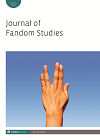
Full text loading...

In recent years hostility amongst fans based on what a person ships or tolerates in shipping has become a growing point of contention in western fandom. This has resulted in an ‘anti-shipper’ (or ‘anti’) vs. ‘pro-shipper’ (or ‘pro-ship’), ‘Good versus Evil’ dichotomy that has slowly consumed fandom communities from the inside out. At the core of ‘anti’ debates is a foundation of beliefs rooted in conservatism that what a person consumes in fiction determines their real-life behaviours. Thus, an anti-shipper who is against those viewed to be pro-shippers is already deemed more morally pure. This has culminated in the escalation of toxic vigilantism that has driven harassment, violence-based threats and the criminalization of fellow fans. This piece deconstructs this anti phenomenon and the dominant behaviours that accompany it by evaluating the traditionally conservative environments in which these ideas originated, and by exploring how antis employ hate narratives, conditioned language and morally motivated networked harassment to justify dehumanizing and abusing other fans. This examination ultimately concludes that no kind of communal fandom restoration can begin to occur until those targeted by such anti-shippers are viewed as human beings (not sub-human) and a universal understanding of fiction, reality, psychology and human behaviour based in science is established.

Article metrics loading...

Full text loading...
References


Publication Date:
https://doi.org/10.1386/jfs_00060_1 Published content will be available immediately after check-out or when it is released in case of a pre-order. Please make sure to be logged in to see all available purchase options.